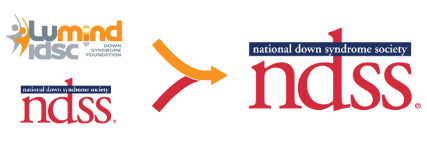Thirty years ago, our family plans changed when our first child, Gwendolyn, was born with Down syndrome. Over time, we realized life would be different, but just as rewarding – filled with love, possibilities, and inspiration.
Our family strived to keep up with Gwendolyn’s ambitions, learning more about the challenges and opportunities that lie ahead. We now understand she can do nearly anything – communicate, sing and dance like a rock star, advocate for herself, and pursue her dreams. Meanwhile, we learned about some of the more hidden challenges like benefits, waitlists, housing, and impending health issues of adults with Down syndrome.
Only a decade before Gwendolyn was born, the average life span for people with Down syndrome was merely 27 but has ballooned into the 60s thanks to medical advances, greater societal support, and relentless advocacy of parents and organizations. The doubling lifespan opened the door to lifelong learning, relationships, and independence for Gwendolyn and so many others, which we are so grateful for, but this longevity has also exposed some of the health issues that were masked by shorter lifespans.
Key among those health issues is Alzheimer’s disease. Nearly 95% of those with Down syndrome will face the torment of Alzheimer’s by the time they are 65, many showing signs decades earlier. Faced with this near inevitability, we discovered LuMind IDSC which provides the bridge between families like ours and the research community. The need has been underscored over the past couple of years as research and trials in the general population have not addressed the overwhelming but unique needs within our community.
As Gwendolyn continued to pursue her independence, our family realized we could not find a comprehensive resource to learn more about benefits, work, housing and so much more. We wrote a book, The Essential Guide for Families with Down Syndrome as a way to help others struggling with the same kinds of questions. It is through this platform that we are working to shine a light on Alzheimer’s prevalence in the Down syndrome community. A portion of all book sales is dedicated to LuMind IDSC because we believe in their mission to accelerate research and increase the availability of therapeutic, diagnostic, and medical care options for individuals with Down syndrome while also empowering families through education, connections, and support. Gwendolyn has also enrolled in research programs to help provide data to accelerate the path toward a solution.
We are grateful for LuMind IDSC and we are hopeful that by working together, we can continue moving forward to find more solutions. We invite you to join us in supporting LuMind IDSC too!
